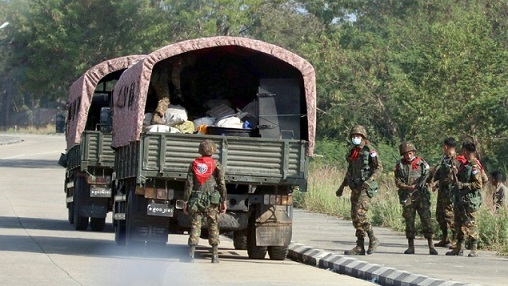
Myanmar’s military has seized power after detaining civilian leader Aung San Suu Kyi and other senior members of her governing party.
All authority has been given to the top army commander and a one-year state of emergency has been declared, a statement on military TV said.
The coup follows a landslide win by Ms Suu Kyi’s party in an election which the army claims was marred by fraud.
She urged her supporters to “not accept this” and “protest against the coup”.
In a letter written in preparation for her impending detention, she said the military’s actions put the country back under dictatorship.
Myanmar, also known as Burma, was ruled by the armed forces until 2011, when democratic reforms spearheaded by Aung San Suu Kyi ended military rule.
She spent nearly 15 years in detention between 1989 and 2010. She was internationally hailed as a beacon of democracy and received the Nobel Peace Prize in 1991.
How did the coup unfold?
In the early hours of Monday the army’s TV station said power had been handed over to commander-in-chief Min Aung Hlaing.
Ms Suu Kyi and other leaders of her National League for Democracy (NLD) were arrested.
Soldiers blocked roads in the capital, Nay Pyi Taw, and the main city, Yangon. The state broadcaster went off air.
Data and communications services have been disrupted. Banks said they had been forced to close and queues formed at cash machines.
One Yangon resident told Reuters news agency: “I don’t know what is happening. I am a bit scared.”
The military says it found millions of irregularities in parliamentary elections lost by the army-back opposition in November. The election commission has rejected the fraud claims.
But the army had threatened to “take action” and now says it will use its emergency powers to organise a new vote.
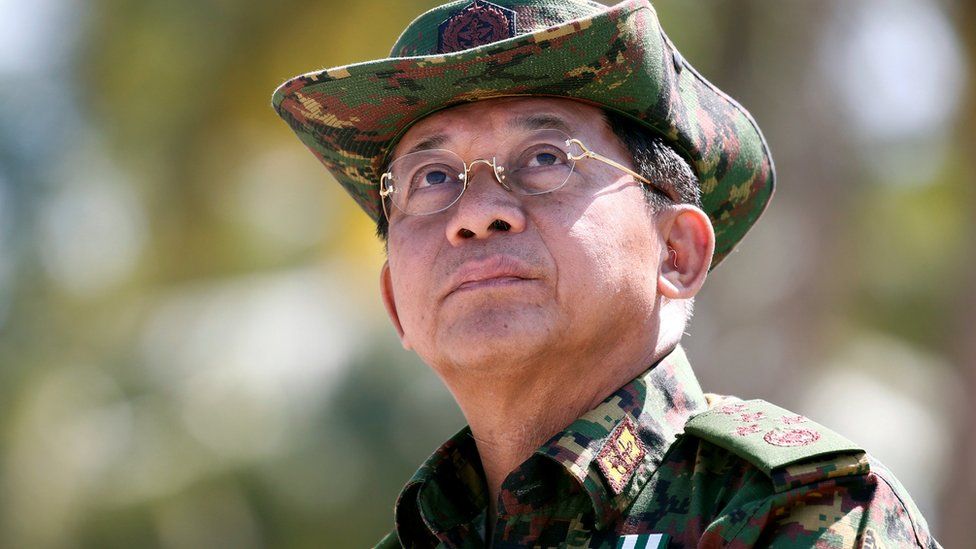

What has the reaction been?
The United States has condemned the coup, saying Washington “opposes any attempt to alter the outcome of recent elections or impede Myanmar’s democratic transition”.
US Secretary of State Antony Blinken called for the release of all government officials and civil society leaders and said the US “stands with the people of Burma in their aspirations for democracy, freedom, peace, and development. The military must reverse these actions immediately.”
In the UK, Prime Minister Boris Johnson condemned the coup and Aung San Suu Kyi’s “unlawful imprisonment”.
European Union leaders have issued similar condemnations.
Meanwhile, Australian Foreign Affairs Minister Marise Payne urged the Myanmar military “to respect the rule of law” and “release immediately all civilian leaders and other who have been detained unlawfully”.
Who is Aung San Suu Kyi?
She was released in 2010, and in November 2015 she led the NLD to a landslide victory in Myanmar’s first openly contested election for 25 years.
The constitution forbids her from becoming president because she has children who are foreign nationals but the 75-year old is widely seen as de facto leader.
In recent years, her leadership has been defined by the treatment of the country’s mostly Muslim Rohingya minority.
In 2017 hundreds of thousands of Rohingya fled to neighbouring Bangladesh due to an army crackdown sparked by deadly attacks on police stations in Rakhine state.
Ms Suu Kyi’s former international supporters accused her of doing nothing to stop rape, murder and possible genocide by refusing to condemn the military or acknowledge accounts of atrocities.
At home, however, “the Lady”, as Ms Suu Kyi is known, remains wildly popular among the Buddhist majority who hold little sympathy for the Rohingya.
‘Myanmar on a perilous path’

So it’s official. The armed forces in Myanmar have confirmed that they have carried out a coup d’etat, their first against a civilian government since 1962, and in apparent violation of the constitution which the military promised to honour as recently as last Saturday.
The grievances which have been driving tension between the military and the government are well enough known. The military-backed party, the USDP, performed poorly in last November’s general election, whereas the NLD did even better than in 2015.
The timing of this coup is also easily explained. This week the first session of parliament since the election was due to start, which would have enshrined the election result by approving the next government. That will no longer happen.
But the military’s longer game plan is hard to fathom. What do they plan to do in the year they have given themselves to run the country? There will be public anger over a coup so soon after an election in which 70% of voters defied the Covid-19 pandemic to vote so overwhelmingly for Aung San Suu Kyi.
Famously stubborn, she is unlikely to co-operate with a gun held to her head. Her ally, President Win Myint, is the only person authorised under the constitution to enact a state of emergency. He has been detained with her.
For the moment the military’s action appears reckless, and puts Myanmar on a perilous path.
Source: bbc.co.uk




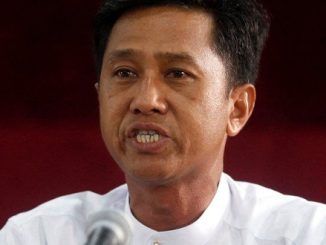
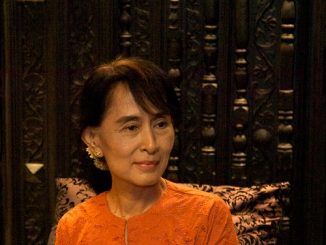
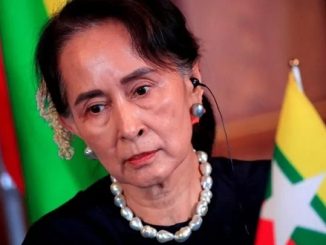
Be the first to comment